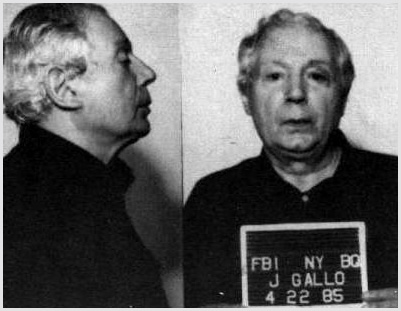By Vrinda Maheshwari
It might seem ironic that The Godfather movies contain lessons for lawyers, given that they glorify the fact that its protagonists are above the law. But as Tom Hanks says in You’ve Got Mail, The Godfather has lessons for everybody. We can learn a lot from Tom Hagen, the original mafia lawyer played to perfection by Robert Duvall in the first two films of The Godfather trilogy.
Tom Hagen is the consigliere of the Corleone family. In Italy, consigliere has a technical meaning, loosely translating to the director of a corporation. It is largely due to Mario Puzo’s characterisation of Tom Hagen and its subsequent popularisation in the media that the word has come to mean lawyer or trusted advisor. Interestingly, he is never avvocato (lawyer); he is consigliere (advisor). The character is said to be based on two real-life personalities – Frank DeSimone, who began as a lawyer but ended as a mafia boss in Los Angeles, and Joseph Gallo, who was the consigliere to the Gambino family. But his character seems too complex to be an amalgamation of just two messed up people. We see him at the beginning of The Godfather, carefully handling the guests who come to confer with the Don at his daughter’s wedding. He advises and assists the Corleone family as we witness their ups and downs, from the rise and fall of Vito Corleone, the Don, and through the trials and tribulations of Michael Corleone, the Don’s youngest son.

Orphaned when he was ten, Thomas Hagen would have spent a life of destitution, had he not saved the Don’s eldest son, Sonny Corleone’s life in a brawl. Sonny takes him home and Don Corleone raises Tom as one of his own children. After Genco Abbandando dies, Hagen takes over as the consigliere, despite his Irish-German ancestry (which made him an anomaly in the all-Sicilian mafia). He is constantly reminded of his outsider status, but rises to the top on the basis of his merit – surely a worthy parable for those of us who are venturing into the often nepotistic world of litigation.
Tom Hagen occupies a mysterious middle ground in The Godfather trilogy. He is well versed in the business dealings of the family and often handles them, and at the same time is the first one to get left out. It can be argued that this lack of involvement was strategic, so that he could be “just a lawyer” and plead plausible deniability in case he needed to. The fact remains that his ambiguous position – both in the criminal organisation and in the Corleone family – is one of the best-orchestrated bits in both the book and the movie. Compare him to Michael: both start off as outsiders, but Michael settles right in by the end of the first movie, while Tom remains, to the end, the perpetual outsider.
One of the most poignant scenes in the film is when Don Vito Corleone is shot, and Tom Hagen is trying to control Sonny. The man he considers his father has just been brutally attacked, but he must remain calm, in order to keep the Family in order. It is of course debatable whether such stoicism is commendable in a lawyer; passionate histrionics might sway a judge. In India, where the practice of law requires written rules of civility, and thinly veiled insults are common in the court rooms, the world of The Godfather presents the alternative in Tom Hagen.
Consider his negotiating skills in alternate dispute resolution. He is always cautious, but never irresolute. When he is sent to convince Jack Woltz to give the Don’s godson a lead role in the studio’s next film, he is polite and suave. He listens to insult after insult from Woltz, responding merely by changing the terms of the offer. And when the verbal negotiation does not work, the response is swift and ruthless; he cuts off the head of Khartoum, the prize stud in Woltz’s stable worth many millions of dollars. Efficient and effective.
Hagen also teaches us the wisdom of adapting with the times. In the second movie, when Michael moves to Nevada and removes Hagen from all the illegal activities, he remains the Corleones’ lawyer and handles the casinos to ensure that the family is always well funded. Tom Hagen faces the situation with equanimity and displays his versatility.
Don Corleone says, in Mario Puzo’s novel, that a lawyer with his briefcase can steal more than a hundred men with guns. It was one of Puzo’s favourite lines in the book, but was removed from Francis Ford Coppola’s screenplay because Marlon Brando thought it was too preachy. Perhaps that is why Tom Hagen is not given as much importance as was due to the character.
A career in law is difficult enough without having to descend to animosity. Learn from the suave Tom Hagen. When the hours at work are getting to you, sit back, relax and put on The Godfather. As Clemenza says, “Leave the gun. Take the cannoli.”
